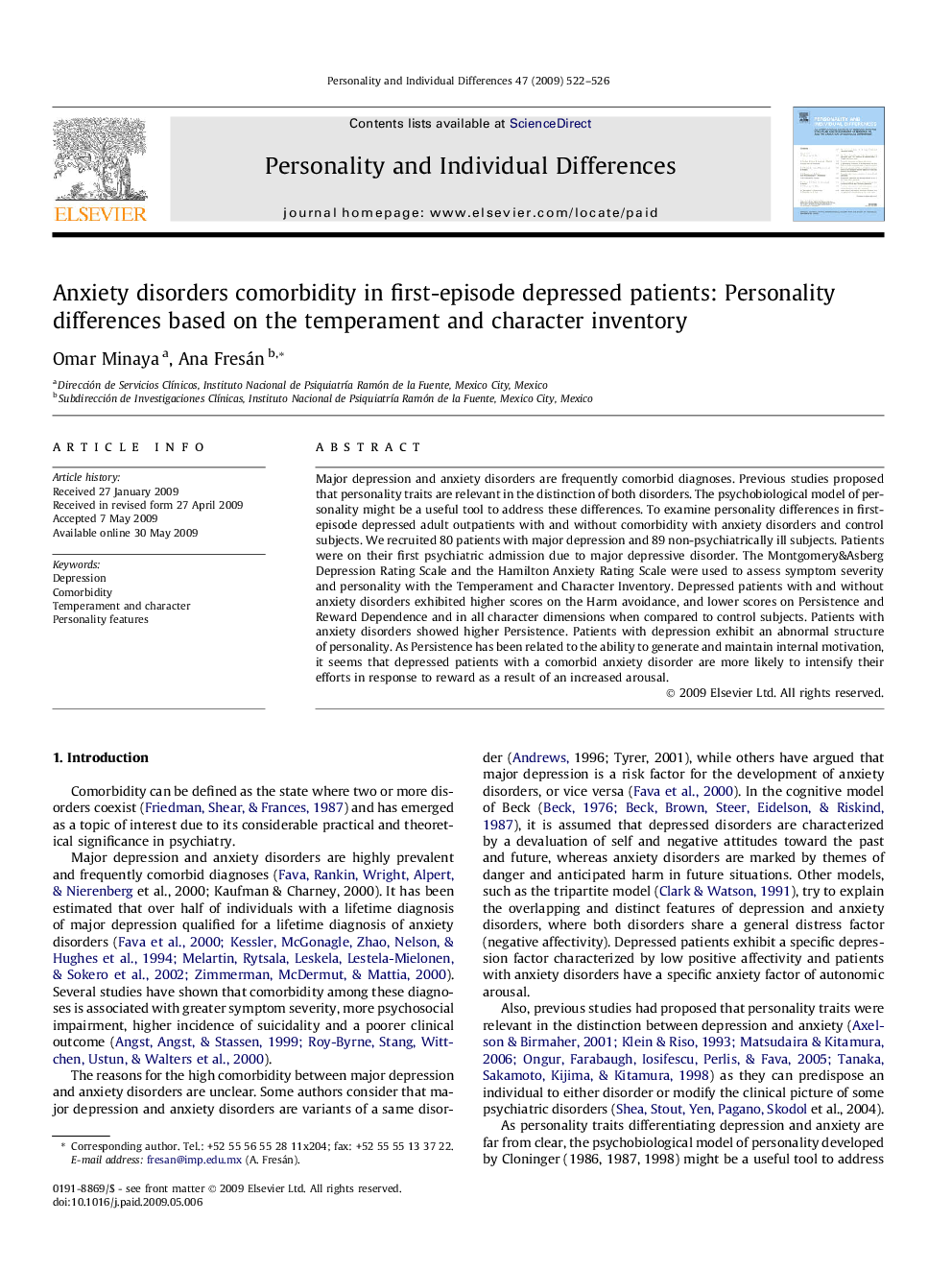| Article ID | Journal | Published Year | Pages | File Type |
|---|---|---|---|---|
| 892085 | Personality and Individual Differences | 2009 | 5 Pages |
Major depression and anxiety disorders are frequently comorbid diagnoses. Previous studies proposed that personality traits are relevant in the distinction of both disorders. The psychobiological model of personality might be a useful tool to address these differences. To examine personality differences in first-episode depressed adult outpatients with and without comorbidity with anxiety disorders and control subjects. We recruited 80 patients with major depression and 89 non-psychiatrically ill subjects. Patients were on their first psychiatric admission due to major depressive disorder. The Montgomery&Asberg Depression Rating Scale and the Hamilton Anxiety Rating Scale were used to assess symptom severity and personality with the Temperament and Character Inventory. Depressed patients with and without anxiety disorders exhibited higher scores on the Harm avoidance, and lower scores on Persistence and Reward Dependence and in all character dimensions when compared to control subjects. Patients with anxiety disorders showed higher Persistence. Patients with depression exhibit an abnormal structure of personality. As Persistence has been related to the ability to generate and maintain internal motivation, it seems that depressed patients with a comorbid anxiety disorder are more likely to intensify their efforts in response to reward as a result of an increased arousal.
